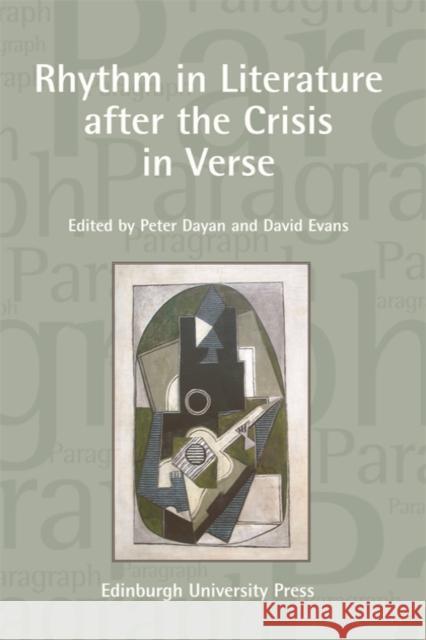Rhythm in Literature After the Crisis in Verse: Paragraph Volume 33, Number 2 » książka
Rhythm in Literature After the Crisis in Verse: Paragraph Volume 33, Number 2
ISBN-13: 9780748640645 / Angielski / Miękka / 2010 / 128 str.
Before the 'crise de vers' which Mallarme diagnosed in the 1880s, just as rhythm in music had to do with note values and repeated patterns, so rhythm in literature could be safely sought in the analysable patterns of metrical verse. The crisis abolished that security: free verse and prose poetry destroyed the privilege of the old countable rhythms. Yet the conviction that rhythm is fundamental to literature survived that destruction. How? Why? Is there really anything one can say, any theory that can measure up to rhythm since the crisis, to a rhythm that cannot be localised in measurable convention? Tracing rhythm as it unfolds in the work of post-crisis writers from Valery, Woolf, Campana, and the Dadaists, via the strange history of Russian verse under Communism, to Reda, Cortazar, and John Wilkinson, this volume seeks to found such a theory precisely in the space between rhythm's elusiveness as a general concept, and the continuing specific force of its presence in the works of literature.
"











